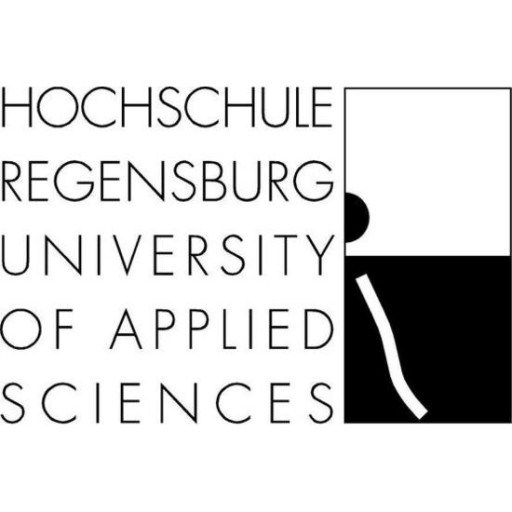Photos of university / #hsb.hochschulebremen
Electronics Engineering at the University of Applied Sciences Bremen offers a comprehensive and practical education designed to prepare students for the rapidly evolving field of electronics and embedded systems. The programme focuses on developing a solid foundation in circuit design, microelectronics, embedded computing, and signal processing, ensuring graduates are equipped with the technical expertise necessary to innovate and contribute effectively in various industries such as automation, telecommunications, automotive, and consumer electronics. Throughout the course, students engage in theoretical coursework complemented by hands-on laboratory experiments and project work, fostering problem-solving skills and practical competencies. The curriculum covers core topics including analog and digital electronics, communication systems, sensor technology, and power electronics, alongside modules on software development, system integration, and project management. Emphasis is placed on contemporary technologies such as Internet of Things (IoT), wireless communication, and automation control. The programme also encourages collaboration with industry partners through internships and joint projects, providing real-world experience and networking opportunities. Additionally, students benefit from the university's state-of-the-art facilities and laboratories, enabling them to work on innovative projects and prototypes. Graduates of the Electronics Engineering programme are well-prepared for careers in research and development, design engineering, technical consultancy, or further academic pursuits. The interdisciplinary approach and focus on practical skills ensure that alumni can adapt to technological advancements and meet the demands of an ever-changing electronics landscape. The programme's international orientation and close ties to industry help students develop global perspectives and professional competencies. With a dynamic mix of theoretical knowledge, practical training, and industry exposure, the Electronics Engineering bachelor’s programme at the University of Applied Sciences Bremen provides a strong foundation for a successful career in electronics and embedded systems engineering.
Educational organisation
Structure of the course:- First semester 20 hours/week: 30 credits
- Second semester 20 hours/week: 30 credits
- Thesis semester: 30 credits
Hours/week represent contact hours in classes, seminars or laboratories. One contact hour equals 45 minutes.
Credits indicate student workload according to ECTS standards.
The course comprises three categories of modules, i.e.
- Engineering core modules: compulsory modules, specific for each course profile;
- Economics and language modules: these are relevant for all three course profiles;
- Engineering required optional modules: these are selected to define the individual profiles.
In general, the modules comprise lectures with integrated exercises in small groups, seminars, laboratory work and projects/case studies. Assessments are usually at the end of each semester.
For the two semesters of teaching the workload of 60 credits is distributed as follows:
- Engineering modules 48 credits
- Economics and language modules 12 credits
Time for first two study semesters may be doubled (only half of modules done per semester), third semester is thesis semester and is usually finished in one semester - no time extension.
Study abroad unit(s)
Not compulsoryForms of assessment
Assignments:- Oral presentations (incl. written summary)
- Lab reports
- Problems/exercises
The examination of each individual module is always held at the end of each semester.
Work required in an examination can be:
- A supervised written exam
- Oral exam
- Design, construction and software programme
- Experimental task and lab report
- Presentation incl. written elaboration
The examination regulations state that a failed exam can be in general repeated once. For up to two exams they may be repeated twice.
For the Master's thesis, six months are assigned for work on a project. This work and the results will be documented in a written assignment and presented orally in a colloquium. The written part and the colloquium will each be graded separately.
The final grade, which will be documented in your transcript of records, is calculated as the average of all module grades (60%) and the grade for the Master's thesis (written part 25%, oral part 15%).
Course objectives
As a graduate of this course, you will have acquired:- A deep understanding of the interactions between the various parts of a system
- Specialised knowledge in your personal field of interest
- The ability to look beyond your area of specialisation
- The ability to work and communicate in an interdisciplinary environment
- International experience
- Communication, management and language skills beyond the field of engineering
Language requirements
- TOEFL: 550 paper-based/213 computer-based/79 internet-based
- IELTS: Level 5.5
- For German students: C1 Level
- Basic knowledge of German, certificate of the level of proficiency for non-native speakers (Goethe-Institut or university classes) or a confirmation from your university stating that German was a main language of instruction during studies.
Academic requirements
- Bachelor's, "Diplom" (four-year course) or equivalent first academic degree in electrical engineering, electronics, information engineering, engineering physics, microsystems, mechatronics, instrumentation, computer science or related disciplines, relevant to the programme
- a final grade corresponding to German mark good or very good (Abschlussnote mindestens 2.5)
- for international students a CGPA of at least 3.00/4.00 or 7.50/10.00 or
- good knowledge of English, certificate of TOEFL, IELTS (details, please look at Language) or equivalent test for non-native speakers, or a university certificate, if English was the main language of instruction during studies
- basic knowledge of German, certificate of the level of proficiency for non-native speakers (Goethe-Institut or university classes) or a confirmation from your university stating that German was a main language of instruction during studies
- references from two persons in education or industry qualified to evaluate your ability and potential for graduate work (use our reference request form)
Enrolment fees
295.75 EUR per semesterThe fee includes a semester ticket covering public transport in the Bremen metropolitan area.
Costs of living
Food/meals: approx. 300 EUR/monthWarm food and snacks are least expensive at the university's cafeterias.
Local transport is included in the enrolment fee. Students receive a semester ticket, which is a pass for free access to buses, trams, and regional trains servicing Bremen and the surrounding area.
Academic expenses: about 30 EUR/month
The University Library (with three locations) is free of charge.
Health insurance: approx. 80 EUR/month
Living expenses: approx. 700 EUR/month (including rent)









